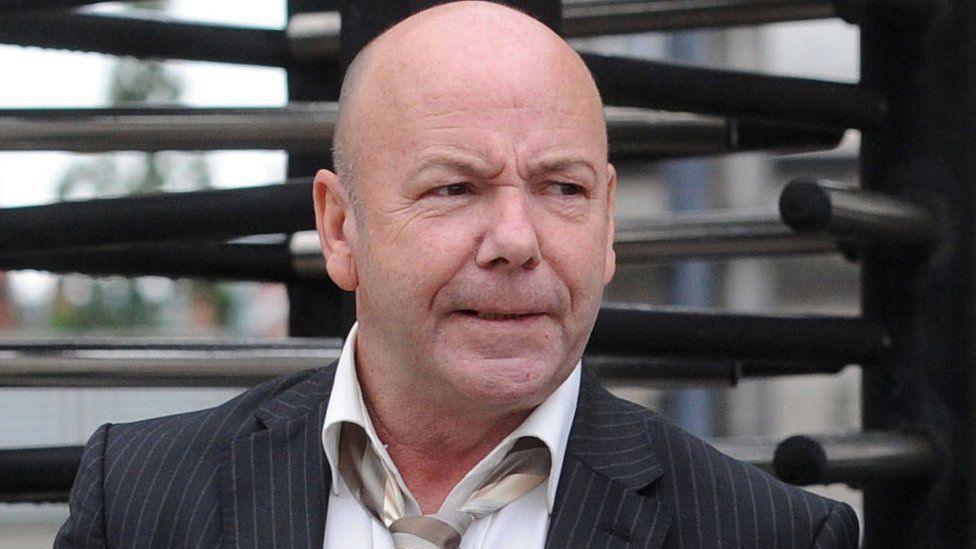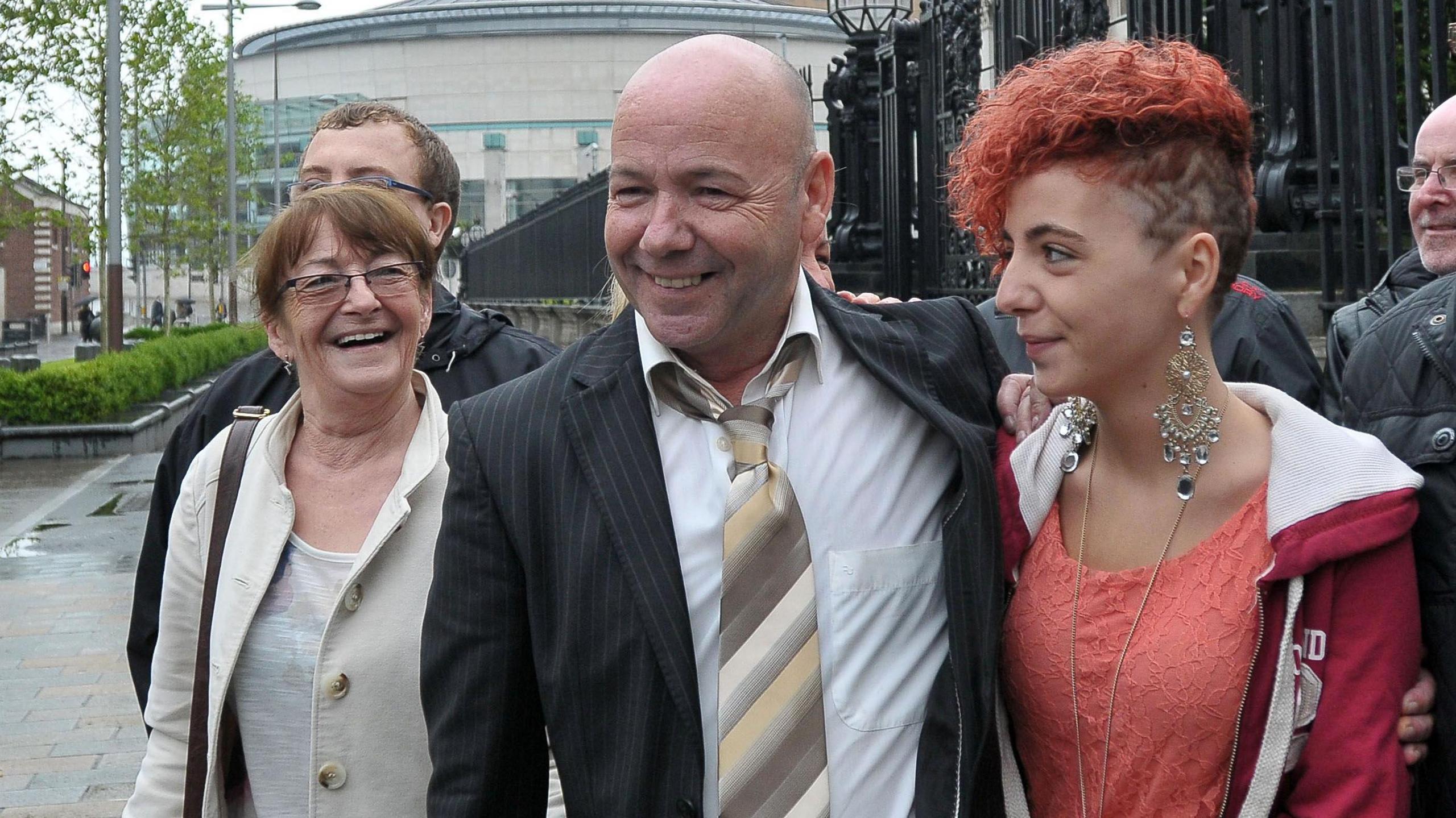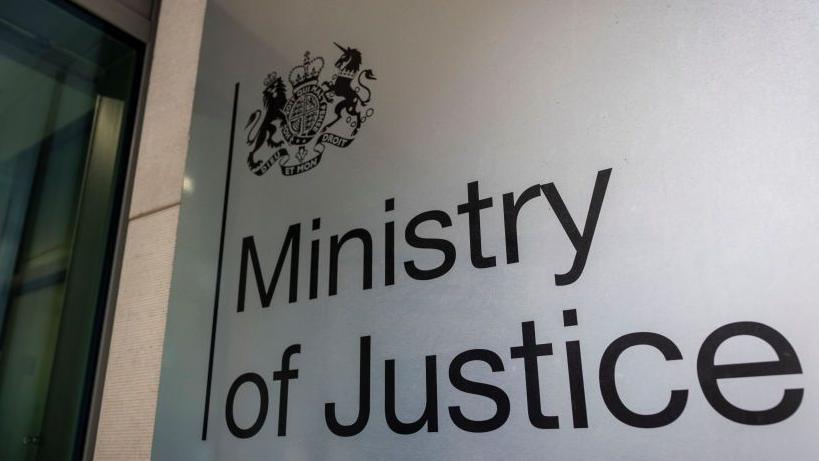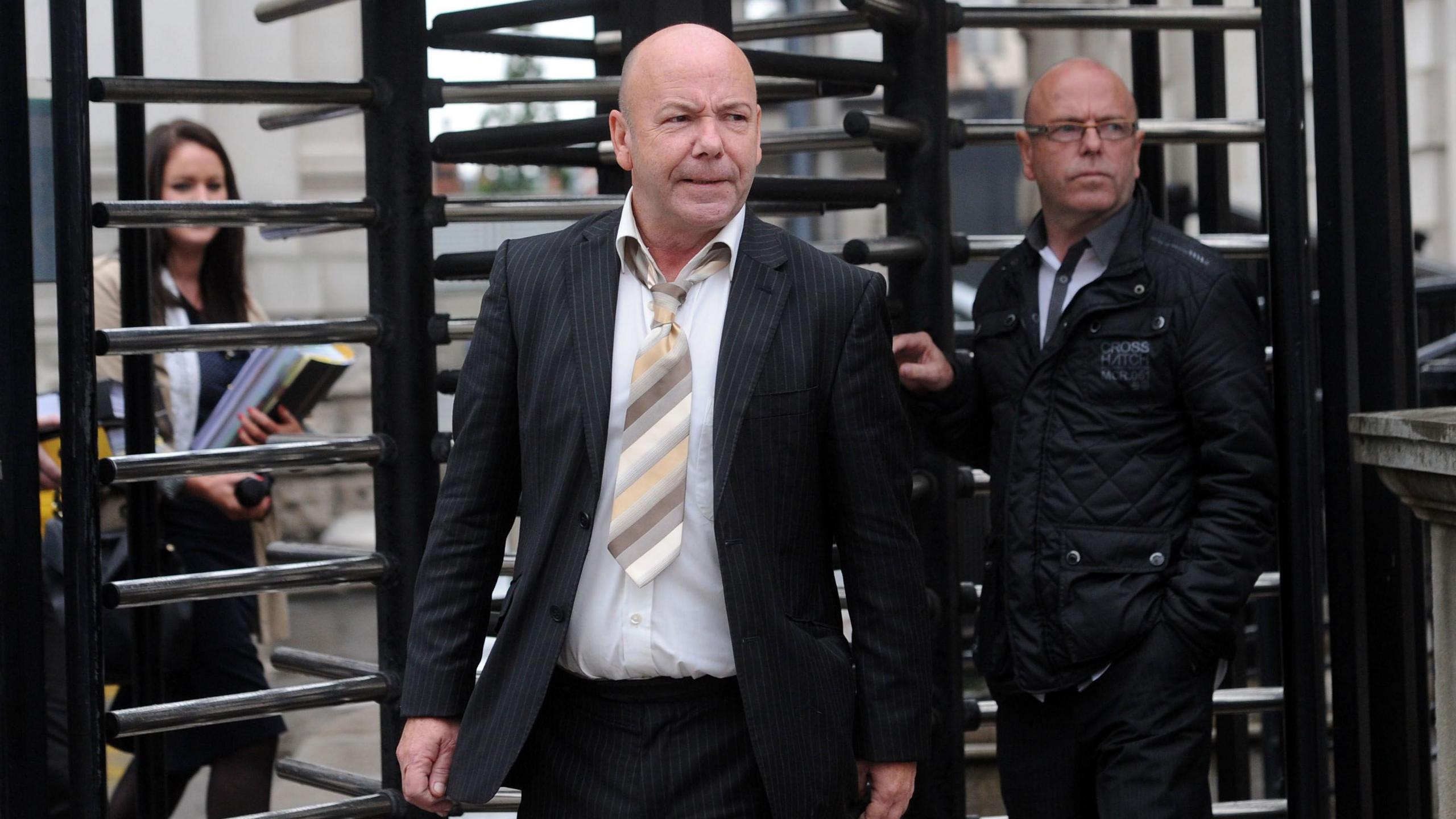Family of wrongfully convicted man not entitled to legal costs

Liam Holden, who died in 2022, campaigned for decades to clear his name
- Published
The family of the last man in the UK to be sentenced to hang after being wrongly convicted of murdering a British soldier are not entitled to have their legal bill covered, a court has ruled.
Liam Holden from West Belfast, who died in 2022, was found guilty of killing Pvt. Frank Bell in 1972.
The death penalty had been commuted to life in prison before a 40-year fight to clear his name resulted in the quashing of the murder conviction in 2012.
In 2012 he accepted the maximum £1m compensation for the wrongful conviction.
In a civil action, his family was awarded £350,000 in damages in 2023 after a court ruled he was tortured into admitting the killing.
Senior judges held that a statutory cap means the Department of Justice is under no obligation to pay the family's legal costs in the case, assessed as just over £120,000.

Liam Holden, pictured in 2012 with this family
Dismissing the family’s challenge on Tuesday, Lady Chief Justice Dame Siobhan Keegan confirmed the department’s position to be legally correct.
She stressed that the issue centred on the legal authority to pay out over the £1m cap.
"If that circumstance arises the legislation does clearly prevent any further payment,” the Lady Chief Justice held.
The family’s lawyers claimed it was unlikely that Parliament intended compensation to include the associated costs of obtaining that outcome.
Dame Siobhan suggested the authorities could still make the payment as a "gesture of goodwill".
She said, “The respondent could as an expression of goodwill pay the costs in this case given the tenable view that the taxation process was entered into with the expectation that costs would follow.”
“This course would set no precedent given the unique circumstances of this case", she added.

Judicial review proceedings were brought against the Department of Justice for refusing to foot the bill due to the cap on payments imposed by legislation.
Counsel for the Department of Justice insisted that whatever is paid out under the 1988 Act cannot exceed the statutory maximum of £1m.
Based on that position, the judge said it was unsatisfactory to have engaged in a costs assessment process.
“The result is that the appellant and the solicitors can justifiably feel aggrieved that costs were not paid,” she stated.

Liam Holden's conviction for murdering Private Frank Bell was quashed a decade ago
Mr Holden, who died in 2022, was found guilty of killing Private Frank Bell in 1972.
He always maintained he was hooded, waterboarded and had a gun pointed at his head before wrongly admitting to shooting Private Bell.
In 2012 he accepted £1m compensation for the miscarriage of justice, the maximum pay-out available under the terms of the Criminal Justice Act 1988.
High Court ruled that British soldiers tortured Holden in order to obtain a false confession to Private Bell
In the civil action against the Ministry of Defence, his estate was awarded £350,000 damages.
By that stage, the family’s legal costs in the miscarriage of justice case had been assessed as just over £120,000.